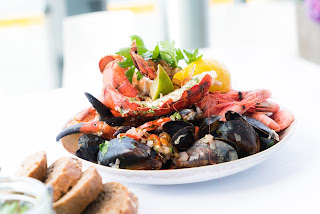Photo by Terje Sollie
s a beloved cuisine worldwide, known for its unique flavor, versatility, and health benefits. From grilled shrimp to sushi rolls, seafood can be enjoyed in countless ways and is a staple in many diets. In this blog post, we will explore the wonders of seafood and its impact on our health and the environment.
Seafood is a rich source of protein, omega-3 fatty acids, vitamins, and minerals. Consuming seafood regularly has been linked to several health benefits, such as reducing the risk of heart disease, stroke, and certain types of cancer. Omega-3 fatty acids, found in abundance in oily fish like salmon and mackerel, can help lower blood pressure, decrease inflammation, and improve brain function.
However, it's important to note that not all seafood is created equal. Some species, like swordfish and shark, contain high levels of mercury, which can be harmful to our health in large quantities. Pregnant women, in particular, are advised to limit their consumption of certain types of seafood to avoid exposing their fetuses to harmful levels of mercury.
Furthermore, the sustainability of the seafood industry is a growing concern. Overfishing and destructive fishing practices, such as trawling, can have a severe impact on marine ecosystems and threaten the survival of certain species. It's crucial for consumers to be mindful of where their seafood comes from and choose products that have been responsibly sourced.
When shopping for seafood, look for labels or certifications that indicate the product has been sustainably harvested or farmed. Organizations like the Marine Stewardship Council and Aquaculture Stewardship Council set standards for responsible fishing and aquaculture practices and provide certification to products that meet their criteria.
In addition to being mindful of where our seafood comes from, we can also make a difference by reducing our seafood consumption and choosing more plant-based options. There are plenty of plant-based sources of protein and omega-3s, such as beans, nuts, seeds, and algae, that can be just as nutritious and delicious as seafood.
In conclusion, seafood is a delicious and nutritious cuisine that can offer many health benefits when consumed responsibly. However, it's important to be mindful of the environmental impact of our seafood consumption and make choices that support sustainable and responsible fishing practices. With a little bit of knowledge and awareness, we can all make a positive impact on the future of our oceans and our health

